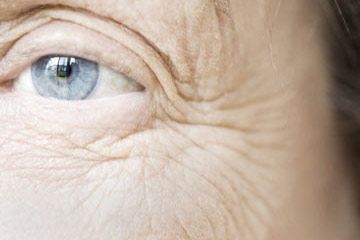Elephants don't seem to mind the thousands of lines across their vast gray skin. But human beings are another story. One wrinkle can send some people into a panic. Cosmetic companies make millions trying to help people reduce wrinkles and recapture their youthful appearance.
But maintaining good skin isn't just about beauty. It is also a health issue. What damages your skin and causes wrinkles may also put you at greater risk for skin cancer. Everyone gets wrinkles as they age, but those who get too much sun will get more wrinkles sooner. In fact, 90 percent of the skin wrinkles that dermatologists treat in patients are from excessive exposure to the sun, not from the normal process of aging [source: Bernstein].
Advertisement
With so much at stake, taking good care of your skin is essential. Start by learning a little about how those worrisome wrinkles form in the first place.
Skin consists of two layers. The outermost layer is the epidermis, which is made up mainly of dead, hardened skin cells that protect the body from outside elements. The next layer is the dermis, which contains a kind of protein called collagen, as well as fibers that give skin its elasticity.
Wrinkles form in both the epidermis and the dermis -- and their appearance varies depending on the layer in which they form. As you age, your epidermis loses its ability to hold on to moisture, which leads to fine lines in the skin's surface. Deeper in the skin, collagen and elastin break down, which weakens the skin's support structure. At the same time, fat starts to disappear from the skin's deepest layers, which leads to sagging. Together, these effects create deeper wrinkles, like frown lines and furrows.
Read on to find out about the culprits that put those laugh lines and crow's feet on your face.
Advertisement


